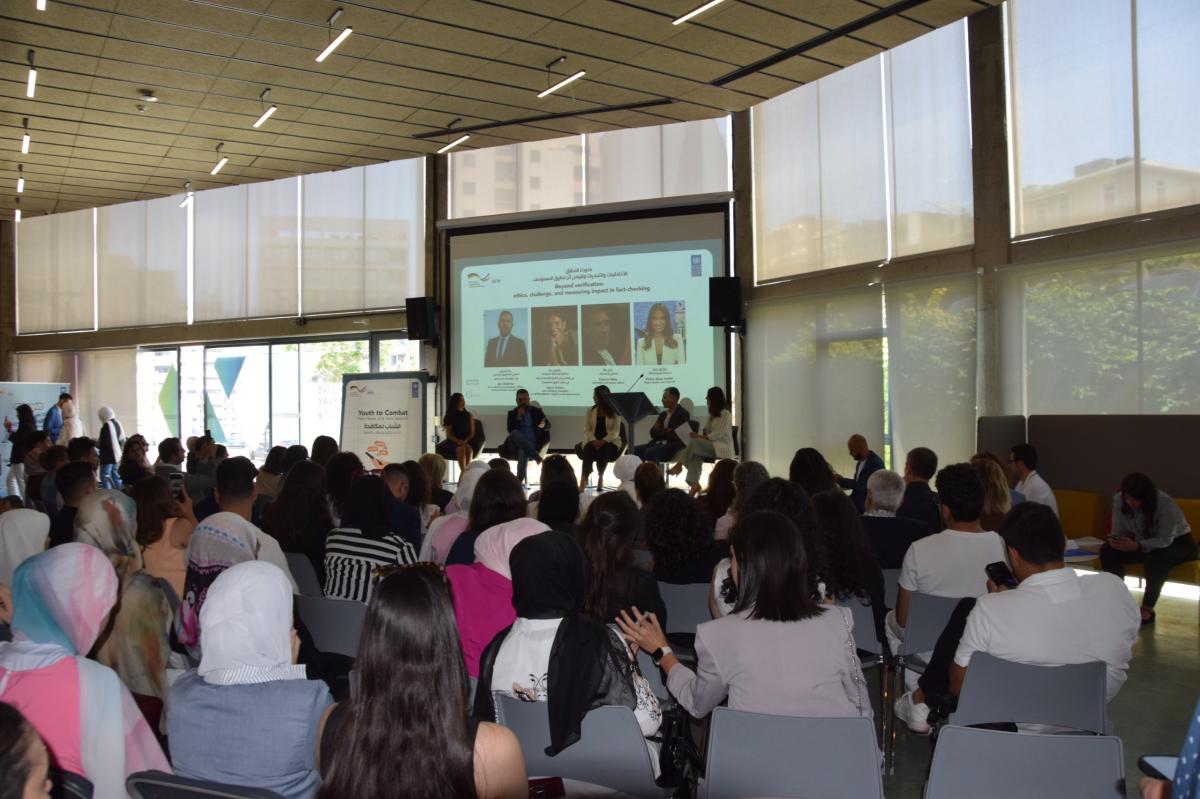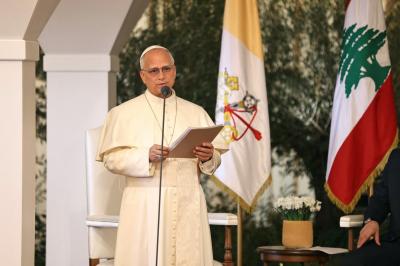In a country gripped by unending crises—from economic collapse to political turmoil, compounded by recurring regional wars—misinformation has become a threat as deadly as the crises themselves. That’s why the United Nations Development Programme (UNDP) launched a national campaign from Beirut under the slogan “Why be uselessly anxious?” , in partnership with the German government through the German Development Bank. The initiative aims to fight false information and foster a culture of fact-checking and mental resilience in Lebanese society.
Speaking exclusively to Al-Safa News, Bertha Alco, UNDP’s Resident Representative in Lebanon, said:
“We are constantly working with young people to combat fake and misleading news, and to limit the spread of incorrect content, given its harmful effects on society. Today, we celebrate the fruits of three years of training and working with more than 180 young men and women who have become the spearhead in Lebanese newsrooms, verifying information and building a more responsible media landscape.”
Systematic Disinformation… and Deep Psychological Impact
The campaign comes at a time when fake news has become a daily feature of the Lebanese scene—especially during crises like the recent war in southern Lebanon or escalations between Iran and Israel, which are accompanied by fabricated content feeding collective fear and stoking tensions. In this context, Claire Basbous, project coordinator at “Dawaer” Association, which implemented the initiative, told Al-Safa News:
“Our goal is not just to raise awareness but also to alleviate the serious psychological impacts that fake news inflicts on people, especially during moments of mass anxiety. There’s a large segment of the public that unknowingly shares inaccurate information, effectively becoming tools for spreading lies without realizing it.”
Artificial Intelligence: Tool of Destruction or Salvation?
Artificial intelligence today is a double-edged sword. Its technologies make producing hyper-realistic fake news easier than ever, often indistinguishable from the truth. Youssef El Amin, Managing Editor of “Sawab” platform specialized in fact-checking, warned in an interview with Al-Safa News:
“Disinformation spikes during wars, when digital armies belonging to different conflict parties spread carefully crafted, distorted content aimed at creating media chaos. The solution begins with raising public awareness, encouraging collaboration with fact-checkers, and using trusted verification tools, instead of mindlessly sharing news.”
Responsible Journalism and Active Civil Society
More than 180 journalists and students have been trained in fact-checking skills, countering hate speech, and producing content sensitive to conflict dynamics. These young people, now part of leading Lebanese media newsrooms, represent the front line in the fight against disinformation.
In a special session held during the campaign, journalists and experts emphasized the importance of coordination between media institutions and civil society to build a healthy information environment. Participants agreed that media can only withstand “infiltration” with a comprehensive training system, a culture of daily verification, and advanced technological tools to counter false information.
From a Campaign to a National Strategy?
The campaign is more than just an awareness activity; it’s a step toward establishing an alternative media culture where fact-checking becomes a collective responsibility, not just a journalist’s task. It also highlights an often-overlooked aspect of Lebanon’s crises: the psychological stress caused by irresponsible media content, rarely considered in analyses of the country’s widespread anxiety.
Yet despite these efforts, there remains an urgent need for a legal framework to regulate digital content, hold purveyors of lies accountable, and strengthen media platforms. Integrating media verification skills into school curricula has also become a necessity rather than an option, given the accelerating digital chaos.
From “Why Get Anxious for Nothing?” to the nation’s newsrooms, a practical experiment is redefining the role of media in Lebanon. It’s a battle against disinformation, waged with education, empowered youth, and a collective awareness still in the making. Will we one day succeed in making the truth spread faster than lies?
The answer may well begin here.
Please post your comments on:
comment@alsafanews.com
 Politics
Politics













